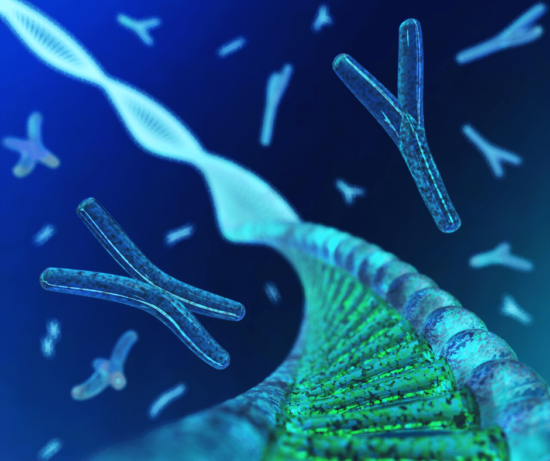We are born with a specific gene pool, but they do not determine us at all, because they can turn on and off during our lifetime.
Our genes and their expression, and consequently the functioning of our body, are also influenced by external factors. External factors, including the environment, diet, physical or mental activity as well as stress, especially chronic stress, can affect those parts of the genome – our DNA – which under balanced conditions would prevent inflammation in the body, and under stress, with disturbed internal balance modify their action. Therefore, many diseases from stress are inflammatory disorders.
How can you help yourself? Take care of your TELOMERES 🙂
 These are protein fragments at the ends of the chromosome that protect DNA from damage, when it is copied, during cell division, Telomere length affects overall longevity. Telomeres shorten during each cell division, which is why they become shorter and shorter with age. But not only with age.
These are protein fragments at the ends of the chromosome that protect DNA from damage, when it is copied, during cell division, Telomere length affects overall longevity. Telomeres shorten during each cell division, which is why they become shorter and shorter with age. But not only with age.
It turns out that the length of your telomeres is also affected by epigenetic changes. Telomere length shortens under stress, fatigue, exhaustion from work, and this process can occur to such an extent that at some point there are not enough telomeres to keep and combine genetic material intact when the cell divides. And when this happens, the cell dies and your whole body starts to get sick. Inflammations such as rheumatoid arthritis and lupus erythematosus have been shown to affect telomere length regardless of disease activity.
What we want for ourselves is long telomeres, because then we have a lot of units that protect genes. But it is not that simple, because telomeres can’t be too long to, so it’s crucial to have telomeres with the optimal length, and that means that we need to maintain the optimal amount of the telomerase enzyme, which repairs short telomeres.
The good news is that we can influence the elongation of our own telomeres and strengthen them by enhancing telomerase activity.
How to get it? The answer is MINDFULNESS
The key is PRESENCE and being aware of your body. Mindfulness-based practices affect your telomeres. Regular and preferably permanently incorporated into your life, mindfulness practice, e.g., meditation, supports the maintenance of optimal telomere length by increasing telomerase activity.
Today we know that what you do with your mind and your relationships with other people changes the molecules of health. It literally changes your enzymes, improves – lengthens telomeres – optimizes the production of substances that help protect you from inflammatory diseases. Being present in the here and now creates an integrated state of mind – the flow of energy and information in the body and brain as well as in connection with other people and the environment.
There are more and more studies that show that mindfulness can help prevent inflammation! With mindfulness and meditation practice, you can influence those areas of DNA that are responsible for inflammation.
Interestingly, studies comparing relaxation techniques and mindfulness practices show that only through mindfulness practices, mindful meditation, can you influence the epigentetic regulation of your genes and thus prevent inflammation and the development of inflammatory diseases.
 Your mind is not just your brain – it is also your whole body and your world of relationship with the environment. If your body’s microcosm and social world are part of the same field of energy and information, they can be integrated by the presence of your mind in the here and now. In this integration, you influence epigenetic processes, optimize the telomerase process, influence the change in the level of enzymes in your body.
Your mind is not just your brain – it is also your whole body and your world of relationship with the environment. If your body’s microcosm and social world are part of the same field of energy and information, they can be integrated by the presence of your mind in the here and now. In this integration, you influence epigenetic processes, optimize the telomerase process, influence the change in the level of enzymes in your body.
Everything is connected, you can create your habits and you can change them too. You can change your way of life, sometimes with the help of a therapist, coach, and often completely on your own.
